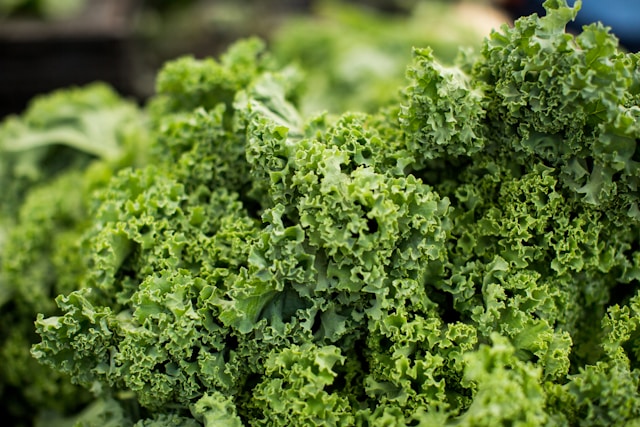The Pungent Powerhouse: Unveiling the Health Wonders of Garlic
January 15, 2024
Hello, dear readers! Today, we are diving into the world of a kitchen superhero – garlic. Not just a flavorful addition to your favorite dishes, this humble bulb boasts an array of health benefits that might surprise you. Join me on this journey as we uncover the magical powers of garlic and explore how it can contribute to your overall well-being.
The Ancient Elixir
For centuries, garlic has held a special place not only in the culinary world but also in traditional medicine. Ancient civilizations, including the Egyptians, Greeks, and Romans, recognized its medicinal properties. In fact, garlic was even used by the famous ancient physician Hippocrates to treat various ailments.
The Key Players: Allicin and Antioxidants
What makes garlic so potent? The secret lies in allicin, a compound formed when garlic is crushed or chopped. Allicin is responsible for garlic's distinct odor and, more importantly, its incredible health benefits. As a natural antimicrobial, allicin has been found to exhibit antibacterial, antiviral, and antifungal properties.
Moreover, garlic is rich in antioxidants, including flavonoids and sulfur-containing compounds. These antioxidants play a crucial role in neutralizing free radicals in the body, reducing oxidative stress, and contributing to overall health.
Immune System Boost
One of the standout features of garlic is its ability to give your immune system a powerful boost. Several studies suggest that regular consumption of garlic may help prevent and reduce the severity of common illnesses such as the flu and the common cold. The allicin in garlic is believed to enhance the activity of immune cells, making your body more resilient against infections.
Heart Health Champion
Garlic has long been associated with heart health, and contemporary research continues to support this link. Studies indicate that garlic may contribute to lower blood pressure and reduced cholesterol levels. The sulfur compounds in garlic play a role in relaxing blood vessels and improving blood flow, which, in turn, supports cardiovascular health.
Additionally, garlic has been linked to a reduced risk of atherosclerosis, a condition characterized by the hardening and narrowing of arteries. Regular consumption may help maintain the elasticity of blood vessels, promoting a healthier heart.
Anti-Inflammatory Wonder
Chronic inflammation is a common denominator in various health conditions, ranging from arthritis to cardiovascular diseases. Garlic has been recognized for its anti-inflammatory properties, attributed to its sulfur compounds. These compounds may help modulate the body's inflammatory response, providing relief to individuals dealing with inflammatory conditions.
Cancer-Fighting Ally
The potential anti-cancer properties of garlic have been a subject of interest for researchers. Some studies suggest that garlic consumption may be associated with a reduced risk of certain types of cancer, including colorectal and stomach cancers. The antioxidants in garlic are believed to play a role in protecting cells from damage that can lead to cancer development.
How to Incorporate More Garlic into Your Diet
Now that we understand the health benefits of garlic, let's talk about practical ways to incorporate more of this flavorful bulb into your daily meals. From roasted garlic cloves and garlic-infused olive oil to minced garlic in your favorite dishes, the possibilities are endless. Experiment with different recipes to find creative and delicious ways to enjoy the benefits of garlic.
Conclusion
In the kitchen and beyond, garlic emerges as a true powerhouse, offering a myriad of health benefits backed by both tradition and modern research. As we savor its unique flavor in our culinary creations, let's also appreciate the incredible impact it can have on our well-being.
References
-
Jose J. Debesa, Grettel M. Navarrete, et al. (2021). The effects of garlic on systemic inflammation in women with metabolic syndrome: A randomized, double-blind, placebo-controlled clinical trial. Clinical Nutrition ESPEN.
-
Ried K, Travica N, et al. (2018). Garlic Lowers Blood Pressure in Hypertensive Individuals, Regulates Serum Cholesterol, and Stimulates Immunity: An Updated Meta-analysis and Review. The Journal of Nutrition.
-
Zhang Y, Xu Y, et al. (2019). Consumption of garlic and risk of colorectal cancer: An updated meta-analysis of prospective studies. Food Science & Nutrition.
-
Reinhart KM, Coleman CI, et al. (2008). Effects of garlic on blood pressure in patients with and without systolic hypertension: a meta-analysis. Annals of Pharmacotherapy.
Leave a comment
Comments will be approved before showing up.
Also in Wisdom News

The Importance of Vitamin K2: Unlocking its Role in Health and Wellness
September 22, 2024

The Importance of Omega-3 Fatty Acids: A Comprehensive Review of Their Effects on the Body
August 02, 2024

The Benefits of Mindfulness Meditation for Mental Health
July 12, 2024
Disclaimer: These statements have not been evaluated by the FDA. These products are not intended to diagnose, treat, cure or prevent any disease.
© 2025 Earth's Wisdom®. All Rights Reserved.




